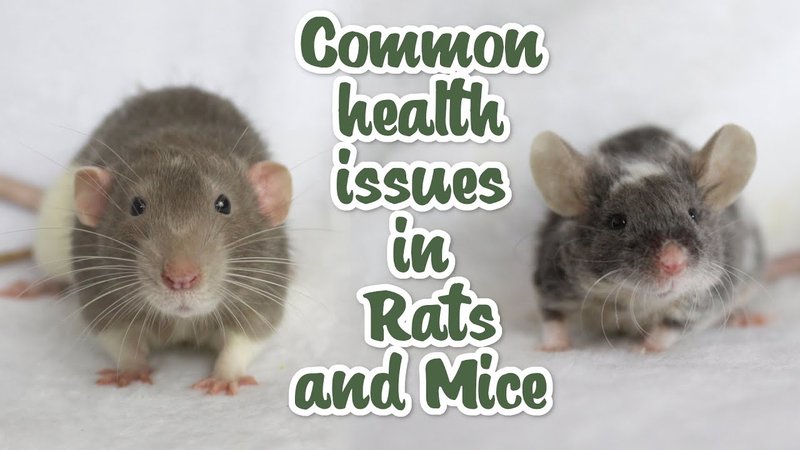
Understanding some common health issues that Berkshire rats can encounter will prepare you as an owner for any bumps along the road. Let’s dive into these concerns and arm you with prevention tips to keep your furry friends thriving.
Respiratory Issues
Respiratory problems are one of the most common health concerns for Berkshire rats. These issues can range from mild sniffles to severe infections. You might notice your rat making wheezing sounds, having a runny nose, or struggling to breathe. Just like with us humans, the change in seasons can trigger allergies or worsen existing conditions.
Why are rats so prone to these issues? Their respiratory systems are delicate. Factors like poor ventilation in their living space, exposure to smoke, or even dusty bedding can contribute to respiratory struggles. To help your rat breathe easier, ensure their cage is clean and well-ventilated.
Prevention Tips:
– Choose the Right Bedding: Opt for paper-based or aspen bedding rather than cedar or pine, which can irritate their lungs.
– Keep It Clean: Regularly clean the cage to avoid buildup of dust and waste.
– Limit Exposure to Smoke: Keep your pets away from cigarettes, incense, or any smoke, as it can irritate their sensitive respiratory systems.
Skin Problems
Skin issues are another area where Berkshire rats might have trouble. This can include anything from dry skin to more serious infections or parasites like mites. Picture this: just like how our skin reacts to changes in weather, rats can also develop issues based on their environment and care.
If you notice your rat scratching excessively, or if their fur looks patchy, it’s worth investigating. Skin problems can often stem from nutritional deficiencies or poor hygiene practices.
Prevention Tips:
– Provide a Balanced Diet: Make sure they’re getting a well-rounded mix of fruits, vegetables, and high-quality rat pellets.
– Regular Check-ups: Keep an eye on their skin and coat during handling. If you notice anything strange, consult a vet.
– Bathing: While rats typically don’t need baths, if they get into something sticky, a quick gentle clean with lukewarm water can help.
Dental Issues
Dental health in rats might not be the first thing that pops to your mind, but it’s super crucial! Berkshire rats have continuously growing teeth, which means they need to gnaw on things to keep them from becoming overgrown. If a rat’s teeth grow too long, it can cause pain, difficulty eating, and even lead to serious infections.
Here’s the thing: if you’ve ever tried to eat something with a sore tooth, you know how important it is to keep those chompers in check!
Prevention Tips:
– Provide Chew Toys: Give them safe materials to chew on like untreated wood blocks or specific rat toys.
– Regular Check-ups: Have their teeth checked by a vet during routine visits.
– Observe Their Eating Habits: If your rat seems to be struggling to eat or is losing weight, it could be a tooth problem.
Obesity and Nutrition
Obesity is a serious concern for many pet rats, including Berkshire rats. It’s like when we let ourselves indulge in too many snacks without balancing them out with healthy meals. Rats are prone to weight gain, especially if they have a sedentary lifestyle and a high-calorie diet.
Maintaining a healthy weight is key to preventing other health issues down the line. If your rat is getting a bit rounder than they should be, it’s time to take a closer look at their diet and activity levels.
Prevention Tips:
– Balanced Diet: Focus on high-quality rat pellets and fresh vegetables. Avoid sugary treats.
– Encourage Activity: Provide opportunities for climbing and exploring in their cage to keep them active.
– Regular Weigh-ins: Weigh your rat weekly to monitor any sudden weight changes.
Urinary Issues
Urinary tract infections (UTIs) and other urinary problems can also affect Berkshire rats. You might notice signs like frequent urination, blood in their urine, or straining. These symptoms can be alarming, and addressing them quickly is essential.
Rats can develop urinary issues for various reasons, including stress, dehydration, or poor diet. Just like you would want to visit a doctor if you were having difficulty, your rat needs the same care.
Prevention Tips:
– Fresh Water Always: Ensure they have constant access to clean, fresh water.
– Healthy Diet: A diet with sufficient fiber can help prevent urinary issues.
– Monitor Behavior: Keep an eye on your rat’s litter habits and report any changes to your vet.
Being a Berkshire rat owner means taking on the responsibility of keeping these lovely companions healthy and happy. You’ve now got a good idea of the common health concerns they might face, from respiratory issues to dietary challenges. The good news is that with the right knowledge and proactive care, many of these problems can be avoided.
By creating a clean living environment, providing a balanced diet, and regularly checking in on your rat’s health, you’re setting the stage for a long, happy life together. And let’s be honest, nothing beats the joy of having a vibrant, healthy rat friend scurrying around, bringing joy to your days. So take these tips to heart, and give your Berkshire rats the best life possible!

